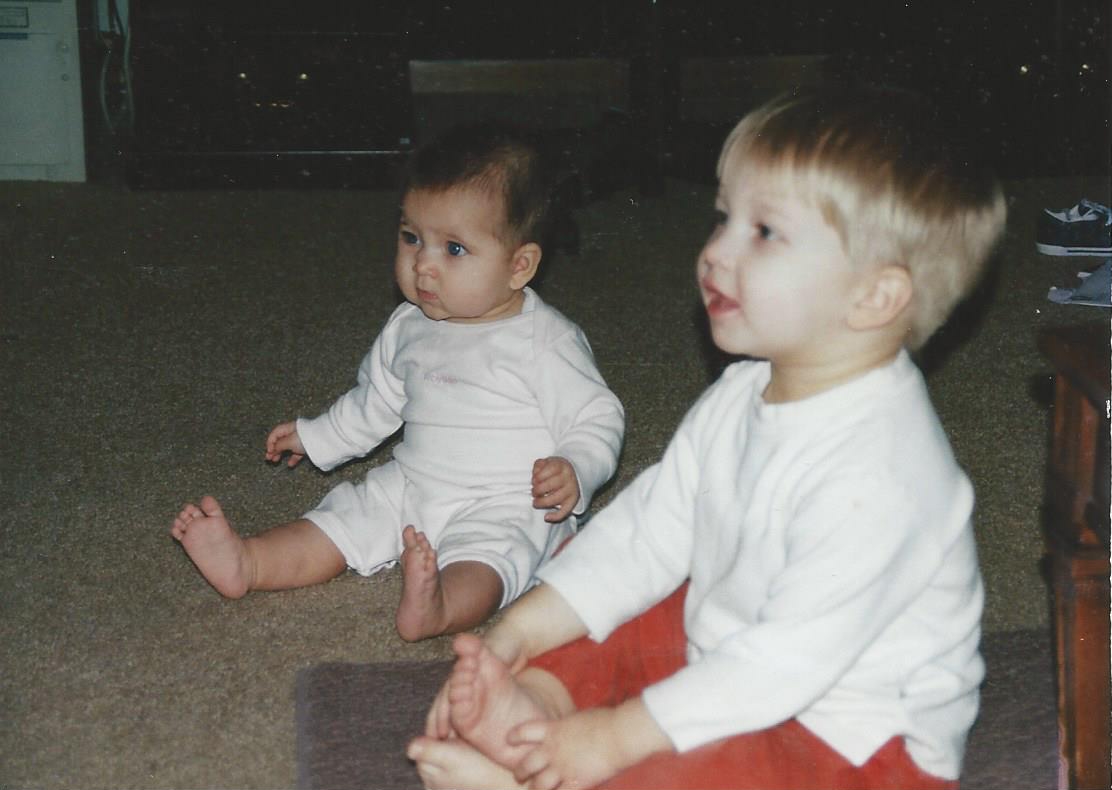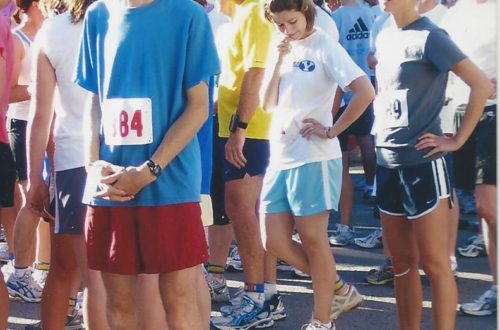
A Mr Rogers Intervention

Thursday night at 7:30 the Beck family picked up a pepperoni pizza at Little Caesars after the late matinee showing of the Mr. Rogers Documentary Won’t You Be My Neighbor?
I’ll get back to the movie in a moment. It’s important to talk about the 7:30 incident in the Little Caesar’s parking lot first. For some reason, Steve and I had forgotten past incidents of the bewitching hour—when J’s blood sugar is low and hangry levels are high, but being the imperfect parents that we are, we did. In fact, not only did we forget about the bewitching hour, but we decided to make an extra trip to Barnes and Noble after the movie, pushing back suppertime even further, so it should have been no surprise about the sudden meltdown in the car.
It was an arm slap—a quick, light arm slap when Steve told J we wouldn’t be getting bread sticks with our pizza. Almost instantaneously with the slap J wailed, “NO!”
“No,” because he knew as soon as he did it, that he shouldn’t have done it. “No” because he really wanted those bread sticks. J alternated from “I’m sorry,” and “Don’t say no, we’re getting bread sticks,” back to “I’m sorry!” again. On the way home, from the front passenger seat, I saw the whole thing unfold in my side mirror: the chin quivers, the sniffling, and then the soft sobbing. Steve, W, and I went inside the house while J insisted staying in the car blubbering away to himself. A self-imposed time out.
While we ate our pizza without J, W said, “I wish Mr. Rogers were still around. I’d love to see him talk to J. I wonder what he’d say?”
“Me too,” I said. I had thought about Mr. Rogers the whole way home.
Somehow in Mr. Rogers’ Neighborhood’s 34 year life span, J, W, and I never got to see an episode of the show. Instead, I grew up on Canadian children’s programming such as The Friendly Giant and Mr. Dressup while my kids’ favourite shows were Sesame Street and Caillou. I missed out on Mr. Rogers’ because I didn’t have access to American television stations. My kids missed out because Mr. Rogers’ went off the air in 2001.
But even though none of us had grown up seeing, or ever watched an episode of Mr. Rogers’ Neighborhood, I knew we’d love the Mr. Rogers’ documentary. I cried through the trailer. I cried through the movie. I wished my kids could have grown up with Mr. Rogers. His understanding and deep caring for children was something I’ve never seen before. He was an advocate for children. He understood children. He helped navigate children through difficult concepts—self-esteem, managing feelings, understanding death and divorce. He did it because he saw children needed to be taught and guided through these concepts. He did it because he knew that civility needed to be taught and modeled.
Through parenting autism, I’ve realized that it’s not just autistic kids that need to be taught about managing emotions and understanding empathy. Every single person on this planet needs to be taught these skills. I think a lot of us are under the impression that humans just “pick up” on these things. “Picking up” is one thing. Learning, understanding, and mastering is another thing. None of us comes to this planet a natural master of these skills. A lot of adults are still trying to figure these things out. Because, after J’s breadstick meltdown I realized that America is—humanity is—J Beck.
The struggle isn’t an “autism” thing. It’s an “everybody thing.” We all have that internal struggle between what we want and how we should behave. That struggle is becoming more and more apparent. The battle to behave in a socially appropriate manner—no matter how we feel inside—is becoming a harder one to win. And honestly, over the past few years as I’ve seen J fight tooth and nail to choose social appropriateness over his personal impulses and desires—as I see him become closer and closer to winning that battle, as I see him choose social appropriateness more often than his own personal struggles, desires, insecurities, and impulses—I see society increasingly choosing impulse and desire and fear over social appropriateness. As J becomes closer to the “standard of social decorum” I see the world around him fall farther away from it.
When, I realized that J wasn’t going to come back in the house on his own, I went back outside and sat with him in the stuffy car and asked him, “Why are you feeling sad and upset right now? Is it because you hurt Dad?”
J paused and I could tell he was trying to figure out what I wanted to hear. “Because I hurt Dad,” he said, nodding his head.
“Are you mad too, because we didn’t get bread sticks?”
“Yes,” he said, and started bawling again.
“So you are a little sad because you hurt dad and a lot sad because you didn’t get bread sticks?”
“Yes,” he said nodding his head.
Everything I’ve read about autism has told me that kids with autism don’t understand empathy. For the past forever, I’ve tried to drill empathy into J’s brain: “You need to feel bad because you made someone feel bad” “You need to see that someone is sad and you need to be sad with them.”
But instead of insisting on those phrases again, I decided that being upset about not getting bread sticks is a valid thing. And recognizing you’ve done something wrong, even when you feel more angry than sorry, is still a step in the right direction. After all, how many times have I felt obligated to compromise or apologize for something because it was good manners when I really wanted to have things my way? Both feelings can be valid. You can be socially appropriate and feel like you haven’t had your fair shake too. Those two things aren’t mutually exclusive.
And being kind and respectful to others? That’s a non-negotiable. You must always be kind to others. No matter how frustrated you are or how you feel about others. Belittling others and calling each other names is never appropriate. Words matter. Using words like “infestation” to describe a group of people that is different than you–that’s as uncivil as it gets. We are humans. Not bugs or diseases. No matter how you feel, everyone around you is still a human. You still have to treat them like one.
J came inside and went up to his room. He knew he still wasn’t calm enough to come to the table. He knew he still had to wait a little longer until that “I’m sorry” felt at least the same inside as “I really wanted those bread sticks.” He apologized to Steve over and over again. He finally came down for his pizza.
As hard as these moments are, I’m glad he’s making progress with them. I want him to be better. I think about our society, how we’re treating our fellow humans right now, and I want us to all be better. I want us to all be good neighbors—respectful and kind, even when we don’t always feel happy about it.
I want us to all go back and watch Mr. Rogers’ Neighborhood. Maybe it would help us get back to that point of civility again.




